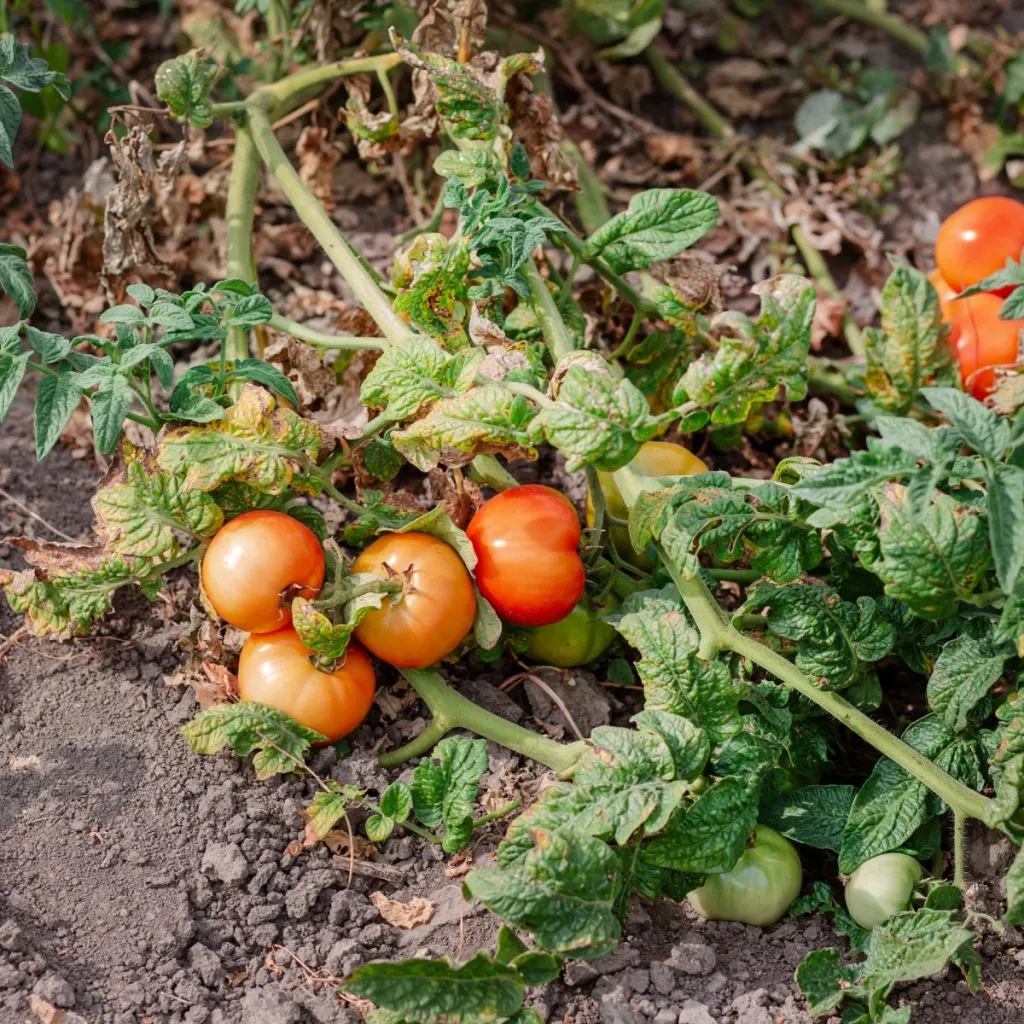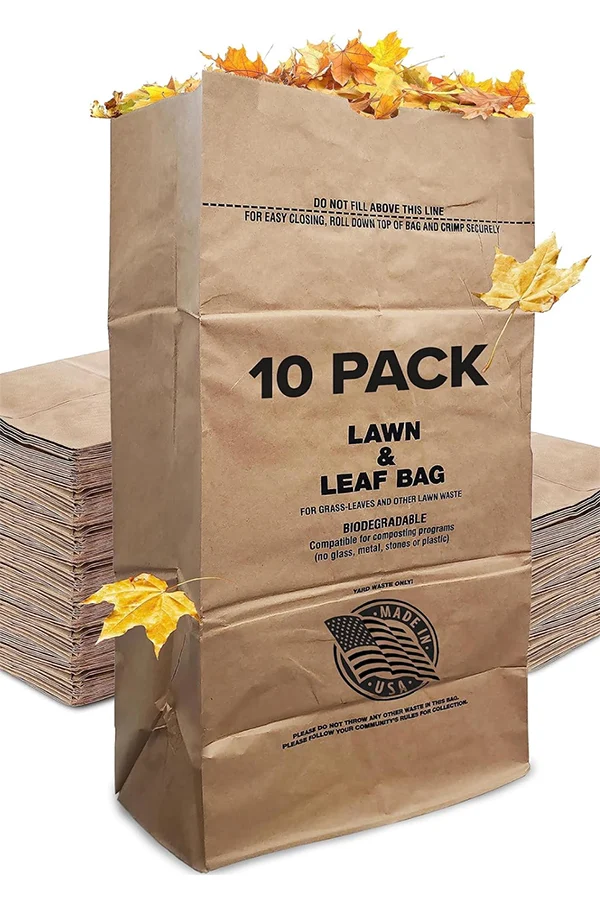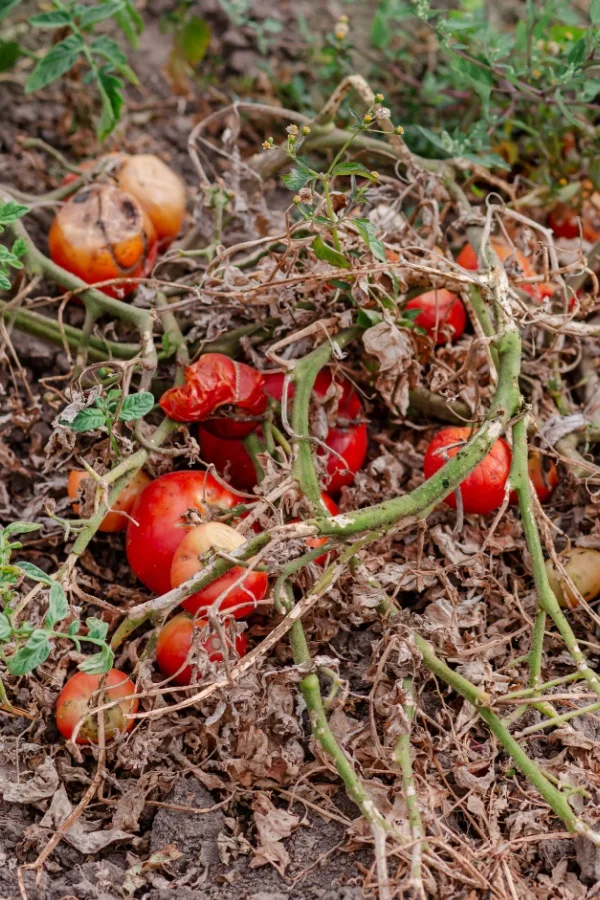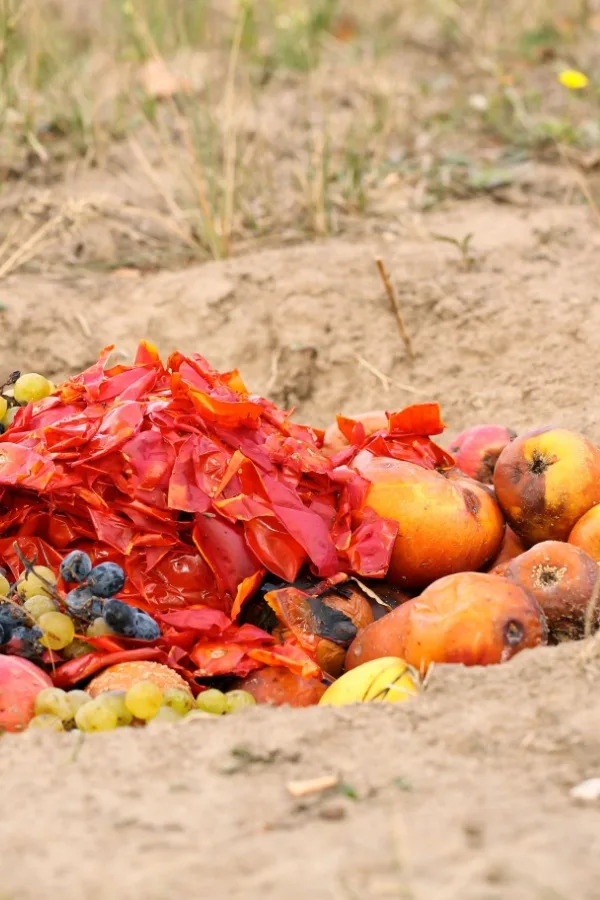Although all kinds of different plants from your garden can be chopped up and added to your compost pile, tomatoes are definitely not one of them – in fact, you should never compost tomato plants or any part of the plants in your home pile!
Tomato plants are prone to a long list of diseases like blight and mildew. In addition, there are several tomato pests that are capable of overwintering deep within plant matter and the soil.
Home compost piles are great for breaking down all sorts of different plant matter, but unfortunately, they simply can’t get hot enough to kill off the diseases, pathogens and pests that tomato plants often contain.

In addition, most tomato plants are still teeming with unripe tomatoes. These fruit are full of tiny seeds that are just waiting for the chance to germinate. And when those tomatoes end up in your pile, once again the heat cannot sterilize the seeds. And it will be just a matter of time before you see unwanted volunteer tomato plants popping up everywhere anywhere you use the compost.
One thing is for sure, it’s just safer to never add tomato plants to home compost piles. Thankfully, there are still some great ways to dispose of the plants at the end of the growing season.
Why You Should Never Compost Tomato Plants – How To Keep Your Garden & Soil Safe!
How To Properly Dispose of Tomato Plants
So now that you know why never compost tomato plants and their fruit, what do you do with the dead plant matter? There are actually a couple of different ways to handle them.

One way to dispose of the plant materials is to send them to a local municipal composting facility if you are lucky enough to have one nearby. These facilities are capable of producing high heat that will kill off any diseases, pathogens, or seeds.
To do this, all you need to do is add your dead or dying tomato plants and the fruit into compostable yard waste bags. You can also add leaves, sticks, and other yard waste as well, but getting your tomato plants out of the garden is by far the most important of all. Product Link: 30 Gallon Kraft Lawn and Leaf Bags
Some locations will come by and gather the bags or you can drop them off at the facility. It’s a great alternative to sending these materials to the local landfill.
Burning Old Tomato Plants – Why You Should Never Compost Tomato Plants
Another option is to burn the plant material in either a fire pit or an outdoor burn pile. Burning allows the materials to heat up enough to kill off the pathogens and diseases that might be lurking on plants. The key is to do the burning away from your main garden space.

This, of course can only be done in areas where open burning is legal. Always be sure to check with your local community about burning rules and regulations before striking a match. You also need to check to make sure there are no current burn bans in place.
As long as you are burning the plants along with all natural, untreated wood, you can save the ashes and place them in your compost pile. The heat is more than enough to kill weed seeds and disease, and there is no worry of passing them on to your plants.
Bury The Pile – Why You Should Never Compost Tomato Plants
Last but not least, another great option is to bury the plant material far away from your garden space. In this way, you are still composting the tomato plants and allowing any nutrients to go back into the soil.
You can do this by trench or hole composting. Simply dig a deep hole or trench and add the tomato plant material inside. Chopping the stems up can help save space and allow the materials to break down even quicker.

Simply bury the materials with soil. As the plants break down, they will add all of their leftover nutrients and resources right back to the soil. You can also do this in flowerbeds where fruit will not be grown.
You can even use trench composting directly in your garden, as long as you don’t add tomato plants or fruit. It’s a great option for those who can’t create a traditional compost pile. It’s also wonderful for those looking to compost in the winter when their own pile is frozen over.
Many gardeners simply dig a few holes in late fall and fill them up over the winter. As they go, they then top with soil as they can to cover it up.
Clean & Disinfect – Why You Should Never Compost Tomato Plants
One thing that is also important is to clean and disinfect any tools and cutters you used in clearing out your tomato plants. Disease can easily pass to other plants from tools. In addition, if you use tomato cages, stakes or supports, you should also disinfect them as well.
A simple solution of one teaspoon of bleach to a half gallon of water will make a great disinfectant spray. Use a water bottle sprayer and spritz the tomato supports with the solution. As always use gloves and eye protection when doing. You can also use disinfectant wipes as an alternative. For more tips on keeping your plants and soil safe and ready to grow big, see: How To Recharge The Soil Where Tomatoes Grew – And Why It’s Important!
Here’s to keeping your tomato plants out of your compost pile and disposing of them safely and properly. And, to keeping the soil and next year’s tomato crop safe! For more season ending tomato advice – check out our article: 4 Things You Can Do This Fall To Help Next Year’s Tomato Plants Grow Better!
I Grow Tomatoes
Follow Our Facebook Page For Even More Great Tomato Growing Tips! I Grow Tomatoes Facebook Page
I Grow Tomatoes is a website created for those who love all things about tomatoes – from planting and growing – to cooking and canning! We publish two articles every week, 52 weeks a year. Sign up today to follow via email! This article may contain affiliate links.
